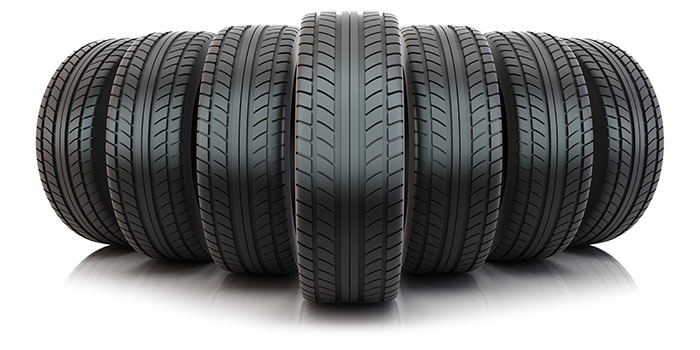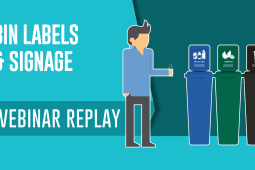We often hear about the all the environmental problems that humans have created and continue to produce on this planet despite overwhelming evidence showing us we need to change our habits.
The current recycling rate in the US is only 34.5 percent and in Canada only 26.8 percent (cue dying pack-man sound), paling in comparison to Switzerland, the current leader in recycling, with a rate of 52 percent.
Luckily for us, some eco-conscious individuals and organizations are taking great strides in creating green solutions for many of these environmental culprits including waste tires, toxic batteries, cigarette filters and plastics.
Let’s take a look at what eco-friendly innovations they’ve come up with.
RECYCLED CLOTHES – HOW OLD FIBERS ARE BEING REUSED TO MAKE NEW GARMENTS

Scientists from the KTH Royal Institute of Technology have teamed up with Swedish textile company Renewcell to produce a ground-breaking recycling process that takes old cotton and turns it into fibers that can then be reused to make new articles of clothing.
What makes this process so revolutionary is that garments created from the recycled fibers are high quality, durable and comfortable.
The Swedish company aims to become a leader in the recycled textile industry and join other companies in closing the loop on the textile lifecycle.
BATTERY COMPONENTS MADE FROM OLD TIRES

There was time when there was no means of properly disposing of tires so most either ended up stockpiled, in landfills or illegally dumped.
Over the decades, multiple avenues and markets emerged in rubber tire recycling and as of 2003, 80.4% (or 233 million) of scrap tires were being reused as fuel, converted into ground rubber or asphalt and recycled into various other products and applications.[4]
Scientists recently discovered a new application for old waste tires. Their research shows that carbon from old tires makes an efficient replacement for electrodes in lithium ion batteries nudging the percentage of reused tires even higher.
OLD CAR BATTERIES BEING RECYCLED INTO SOLAR CELLS

Disposing of batteries has been an ongoing problem due to the highly toxic chemicals that make up their innards and the health and ecological effects that they can cause.
According to a study by Environmental Defense and the Ecology Center of Ann Arbor, it’s estimated that the batteries of vehicles on the road contain an estimated 2,600,000 metric tons of lead. Some of these compounds are extremely toxic and long term exposure to just tiny amounts of these compounds can cause brain and kidney damage, hearing impairment, and learning problems in children.[8]
A team of MIT engineers have discovered that PSCs (perovskite solar cells) can be made from the contents of old car batteries and show to have the same material characteristics as PSCs made from raw lead ore.
The Organolead Halide Perovskite Solar Cells show a lot of promise as a new large-scale and cost effective tech for the renewable energy industry.
Replacing Coal with Waste Tires in Steel Manufacturing
Australian scientist Veena Sahajwalla, who’s made significant contributions in the field of Waste Plastics and EAF Steelmaking, invented an environmentally friendly technology that allows rubber tires to replace coal and other materials in electric arc furnaces during steelmaking.
An agreement has even been signed with one of Australia’s biggest steel manufacturers to allow the use of this newfound technology!
Using Wi-Fi to Lower the Carbon Footprint of Waste Haulers
Finnish company Enevo has created a way to take the guesswork out of collection with a logistics solution that saves money, time and the environment.
By using wireless sensors on bins, waste haulers are able to measure and predict when bins are full and need to be dumped. This allows for routes to be optimized for haulers allowing them to save time, gas and lower their carbon footprint!
While this technology is only being used in waste collection, these sensors can easily monitor recycling bins as well.
Turning Cigarette Filters into Highly Efficient Supercapacitor Electrodes

Scientists at Seoul National University have recently published a study describing a method that takes material from cigarette filters and uses them in creating supercapacitor electrodes.
Supercapacitors can accept and deliver charges much quicker than batteries, store 10 to 100 times more energy per unit volume or mass than electrolytic capacitors and can tolerate more charge and discharge cycles than rechargeable batteries.
This discovery helps the environment in two ways:
- It finds a purpose for discarded cigarette butts which are one of the most littered items across the globe.
- It cuts down on the amount of toxic material needed to make rechargeable batteries.
Reverse Vending Machines That Pay You For Your Recyclables.
British based company reVend has created vending machines that gives you back money for putting in recyclable material. There are over 100,000 units all over the globe that are designed to work in both deposit and non-deposit systems.
The company has innovated units to get more out of the recycling process allowing you to donate your recyclable earnings to eco-friendly charities, or receive a voucher towards any purchases made at the store the units are located in.
Luckily we have individuals out there who are using ingenuity and science to help stem the tide of waste from our landfills and keeping pollutants out of the environment.
Sources:
- http://www.takepart.com/photos/recycling-gallery/
- http://pubs.rsc.org/en/content/articlelanding/2014/ee/c4ee00965g#!divAbstract
- http://iopscience.iop.org/0957-4484/25/34/345601/
- http://www.epa.gov/osw/conserve/materials/tires/basic.htm
- https://www.epa.gov/landfills/municipal-solid-waste-landfills
- http://pubs.rsc.org/en/content/articlelanding/2014/ra/c4ra03888f#!divAbstract
- http://www.atlas.d-waste.com/
- http://www.atsdr.cdc.gov/toxprofiles/tp13.pdf







